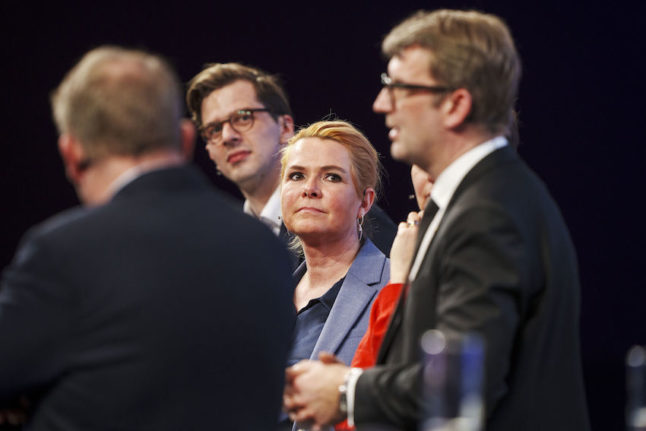New sexual consent law ‘used as intended’: DPP
A review of Denmark’s new sexual consent law by the country’s Director of Public Prosecutions has concluded that it has been used as intended in the two years since it was brought into the statutes.
“During the past two years, we have seen convictions in cases where the victim has been passive during a sexual assault, which is within the newly criminalized area, where the starting point for the punishment level is one year and two months,” Jessika Auken said in a press statement. “Our review of case law shows that the law has been applied as intended.”
The new law, which requires both parties to give their consent before sexual intercourse takes place, came into force on January 1st, 2021.
Danish vocab: samtykke – consent
Former Danish People’s Party councillor joins Denmark Democrats
Kristoffer Storm, a prominent city councillor in Aalborg, has announced that he is moving to Inger Støjberg’s Denmark Democrats party, in the latest win for Denmark’s newest far-right party.
Storm was elected as a representative of the rival Danish People’s Party in 2021, but has been an independent since June last year.
“Everyone who knows Kristoffer knows that he is an unusually skilled and serious politician. And he has done really, really well as a councillor, so it is a huge gain and joy for me that he is coming over to us now,” Støjberg told TV2.
Danish vocab: en kæmpestor gevinst – a huge gain
Danish central bank raises interest rate by 0.5 percent
Denmark’s central bank Nationalbanken raised its interest rate by 0.5 percent on Thursday in response to a similar move by the European Central Bank (ECB).
The Danish central bank confirmed the decision in a statement after the ECB earlier on Thursday increased its rate by the same amount, bringing it up to 3 percent.
The latest raise is the sixth time within the last year that the ECB has put its interest rate up.
The new rate is the highest set by the ECB since the Global Financial Crisis in 2008.
The Danish National Bank’s interest rates are slightly lower than the ECB’s — 2.6 percent for deposits and 2.75 percent for loans following Thursday’s increases. That is because Nationalbanken increased its interest rates by 0.15 percent less than the ECB the last time the rates were raised, at the start of February. Similarly, it raised its rate by slightly less than the ECB in December.
Danish vocab: renteniveau – interest rate level
Danish ‘puppy boom’ over as Labrador tops list of country’s favourite dogs
The Labrador Retriever has been named as Denmark’s most popular dog breed in an annual list which also suggests that a Covid-19 “puppy boom” has passed its peak.
Puppy litters in Denmark have returned to pre-Covid-19 levels, according to dog owners’ association Dansk Kennel Klub.
The pandemic saw a “puppy boom” in which the number of litters increased, but the 22,481 puppies registered with the organisation in 2022 represented a 20 percent decrease compared to the previous year.
Labrador Retrievers are meanwhile the most popular pedigree dog breed in Denmark for the seventh year in a row, Dansk Kennel Klub said in a press statement released on its website.
Danish vocab: hunderacer – dog breeds



 Please whitelist us to continue reading.
Please whitelist us to continue reading.
Member comments